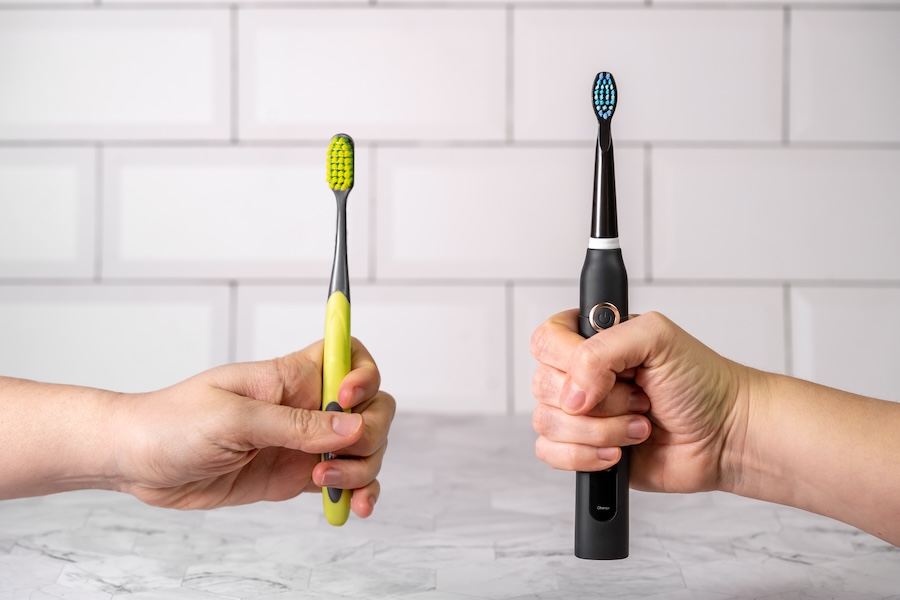
Should I Be Using a Manual or Electric Toothbrush?
October 21, 2025 9:00 amWalk down any dental aisle, and it’s easy to feel overwhelmed by options — oscillating heads, built-in timers, sleek designs, and price tags that make you wonder if you’re buying a gadget or a toothbrush. At Norman, Obeck, & Foy Dentistry in Richmond, we hear this question often: Do electric toothbrushes actually clean better, or can a manual one do the job just as well?
Let’s break down the pros and cons so you can find the brush that fits your needs and habits best.
The Case for Manual Toothbrushes
Manual toothbrushes are the classic choice — simple, affordable, and effective when used correctly. They’re widely available, easy to travel with, and don’t require batteries or charging stations.
The key word, though, is technique. You’ll need to brush for two full minutes using gentle, circular motions and pay close attention to all surfaces of your teeth. Too much pressure can actually wear down enamel or irritate your gums, so a soft-bristled brush is best.
For those who are consistent and mindful with their brushing, a manual toothbrush can still deliver great results.
Why Many Patients Prefer Electric Toothbrushes
Electric toothbrushes make things easier — and for many people, that’s the biggest benefit. The rotating, vibrating, or sonic motion of powered brushes helps remove plaque more efficiently, especially along the gumline and in hard-to-reach areas.
Built-in timers ensure you brush for the recommended two minutes, and some models even alert you if you’re pressing too hard. This can be especially helpful for patients who tend to “scrub” aggressively or have a history of gum recession.
Electric toothbrushes can also be a game changer for people with limited dexterity, such as children, seniors, or anyone with arthritis. The brush essentially does the work for you — you just need to guide it.
Which One Is Right for You?
There’s no single answer that fits everyone. The best toothbrush is the one you’ll actually use — consistently and correctly. If you love gadgets and appreciate a little extra help, an electric brush might keep you on track. If you prefer simplicity, travel often, or just like the feel of a manual brush, that’s perfectly fine too.
What matters most is brushing twice a day, using fluoride toothpaste, and replacing your brush (or brush head) every three to four months — or sooner if the bristles fray.
Personalized Advice and Preventive Dentistry in Richmond, VA
At Norman, Obeck, & Foy Dentistry, Dr. Norman, Dr. Obeck, and Dr. Foy can help you choose the right toothbrush for your smile and your lifestyle. During your next checkup, ask us to review your brushing technique or recommend specific tools that fit your needs.
A toothbrush — whether manual or electric — is your smile’s first line of defense against cavities and gum disease. Let’s make sure it’s working for you.
CONTACT USCategorized in: Oral Health Tips
